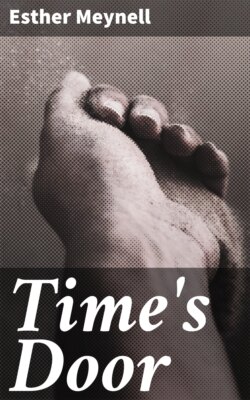Читать книгу Time's Door - Esther Meynell - Страница 7
На сайте Литреса книга снята с продажи.
IV
ОглавлениеInto all the confusion and misery of the succeeding day stalked Paganini. The rambling apartment in a crumbling Roman palace in which the Cavatini family lived, high up, like birds, with rooms that mostly opened out of each other, seemed full of doctors and apothecaries to Giovanni, women who wailed, and one frightening glimpse of his father prostrate on a divan, with stony face and staring eyes. Everyone seemed circling, as in a desolate dance, round that figure. No one heard the knock upon the door, so Giovanni, who had been crouching forgotten in a corner, on the second summons, went to answer it. He pulled open the heavy door, and there stood Paganini. Giovanni’s mouth fell open, he stood gazing upwards and did not say a word. He did not believe Paganini was real—anything might occur in the dislocated world in which he was now living.
Paganini knew what had happened—that was why he had come. But had he not known he might have read something of it in the boy’s troubled and frightened face.
He put his lean hand on Giovanni’s shoulder.PAGANINI’S VISIT “May I come inside your apartment for one small moment?” he said, “I know the poor father is ill, but one thing I would say to you.”
By this time he was inside. He sat down on the nearest chair and drew Giovanni close to him, looking at him intently with his melancholy eyes, so large and deeply set in their cavernous sockets.
“How old are you?” he asked the silent boy.
“Ten years on the last St. Leo’s Day.”
“I wonder what saint presided at my birth?” Paganini muttered grimly. Then he turned again to Giovanni, “You play the fiddle? Your father said you had the real gift. He said you much desired lessons from me?”
Giovanni by this time was quite sure that he was dreaming. “I thought—I once said,” he stammered, “But my Papa, he laugh at me. But he does not laugh now, he cries, cries. No one, he says, must ever play the violin any more, only Paganini, he is the only one, all the others they must smash their fiddles. He has broken his, the beautiful Amati, all into little bits.”
Paganini gasped as though he had been struck over the heart, “Broken up an Amati? But he must be mad!”
The word echoed round them.
Suddenly Paganini knew, just as if he had been told. Luigi Cavatini’s brain had turned—it was his own playing the previous night which had helped to cause this, he remembered the trembling excitement of Luigi when they spoke together, the wild strained look in his eyes. The whole thing assumed to him an entirely different aspect. He had heard of Cavatini’s sudden collapse, and had come to ask for a violinist whose ability he knew and respected. The small son had also appealed to him. He thought possibly he could do something for the family, and felt secure that any help he might offer would not need to take the form of money, for that he could not bear to part with. It now seemed as though destiny had drawn him more closely into this circle. His strange heart was curiously touched, yet he shrank from any close human contacts. He gazed at the boy, while he thought rapidly, and the boy gazed back at him. He was leaving Rome that afternoon, he could do nothing immediately.
Giovanni suddenly leaned against his shoulder. “If I could hear you play, many times——”
He left the sentence unfinished.
Paganini put an arm round him. The simplicity that lay under his twisted mind responded to the simplicity of the child.
“I cannot stay now. But in one month I will come back to Rome. I will come here—do you understand?—in one month, on the Day of St. Leo, since you like the Saint’s Days. And then you shall play to me, and I will see if it is possible that I can give you lessons. Your mother cannot see me now, she is sad and in much trouble, but tell her what Paganini has said. I will speak with her fully when I return—but before anything can be done it is necessary that I hear how you play. Now I go, but I will come back.”
He looked for a long moment at Giovanni,HIS DEPARTURE curiously attracted by the sensitive face which betrayed its mingling of races, its Italian dark and its German gold, in the black brows and tawny eyes, dusky skin and shock head of dark hair. His eyes had his father’s trick of half-closing in moments of strong emotion, and the brows had the pathetic lift of his mother’s, while his mouth was still childish, but showed signs of the passionate curves of Luigi Cavatini’s. It was a face undeveloped, but full of a troubled eagerness and enchanting possibilities.
In that look Paganini took in a complete impression of the boy, which confirmed his aroused interest. A moment later the door shut, Giovanni was alone, Paganini had vanished like a dream, but the marvellous things he had said remained. Giovanni went over them carefully to himself. He must find his mother, give her the wonderful message.
When he did so Gerda gazed at him with a blanching cheek—tears, which had been flowing at intervals all day, rose again to her tired eyes.
“Blessed Mother of God,” she cried, “Is it not enough that my husband is mad? Not my son, too!”
She dropped her face into her hands and wept.
